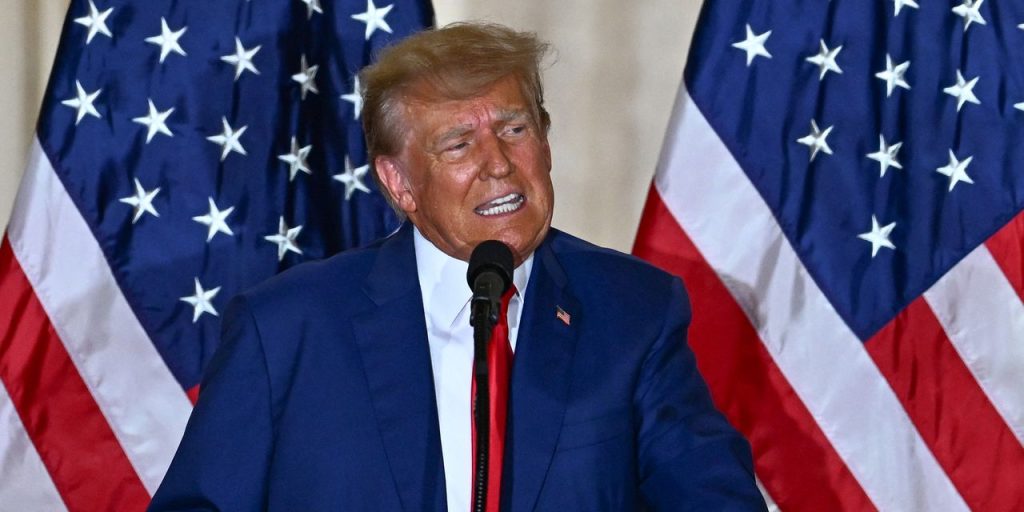Former President Donald Trump is facing even more legal jeopardy as the race for the Republican presidential nomination heats up, following an indictment Tuesday by a Washington grand jury in special counsel Jack Smith’s probe into efforts to overturn the 2020 election.
The historic indictment comes after Trump in April pleaded not guilty to 34 felony counts in a case involving hush-money payments, and his June indictment over his handling of classified documents at Mar-a-Lago, his Florida resort. And the former president’s legal troubles may not end there, as Trump is facing still another probe in Georgia into efforts to overturn that state’s results in the 2020 presidential election.
What do these charges mean for Trump’s latest White House campaign? As he presses ahead with his bid for the GOP nomination, here are a few questions and answers about the impact of the cases on Trump’s political future.
Question: Can an indicted person run for president?
Answer: Yes. There’s nothing in the Constitution that prevents it. Article II, Section 1, of the Constitution doesn’t mention criminal records. The only requirements to run are being a natural-born citizen at least 35 years old and a resident in the U.S. for 14 years.
Tobin Marcus, of Evercore ISI, noted in an analysis in June that Trump can indeed run, but raised the prospect of a Supreme Court case should Trump be convicted and win the presidency.
“Some of the charges in this case carry disqualification from public office as a statutory penalty, but we don’t see how this would apply to the presidency. Practically, if Trump is convicted but nevertheless wins the election, we will be in totally uncharted waters and the Supreme Court will have to figure it out,” said Marcus, senior U.S. policy and politics strategist at Evercore.
“We reiterate, since many investors have asked us, that as a Constitutional matter, Trump can run for president if he is not only indicted but convicted and incarcerated,” Marcus said.
Read also: What to know about the documents case and what’s next
Q: Could Trump still vote for himself if convicted of a felony?
A: Likely not. Forty-eight states ban people with felony convictions from voting, according to the Sentencing Project, an advocacy group. Many states restore felon’s voting rights once they’re released from prison, however. Only Maine and Vermont allow felons to vote while still in prison.
Q: What other investigations is Trump facing?
A: Besides the criminal charges in New York stemming from the hush-money case, the classified documents case and Jack Smith’s Jan. 6 probe, Trump is facing another in Fulton County, Ga. The Georgia probe centers on efforts by Trump and his allies to overturn that state’s 2020 election result.
Q: What has Trump said about the charges?
A: “This is nothing more than the latest corrupt chapter in the continued pathetic attempt by the Biden crime family and their weaponized Department of Justice to interfere with the 2024 presidential election,” the Trump campaign said in a statement late Tuesday. “The lawlessness of these persecutions of President Trump and his supporters is reminiscent of Nazi Germany in the 1930s, the former Soviet Union, and other authoritarian, dictatorial regimes.”
This report was originally published June 9, 2023, and was updated Aug. 1 after Trump’s latest indictment.
Read the full article here














